

| Cruise Region : Mediterranean Sea |
| Company : The Ritz-Carlton Yacht Collection |
| Ship : LUMINARA |
| Journey Start : Thu 04 Sep 2025 |
| Journey End : Thu 11 Sep 2025 |
| Count Nights : 7 nights |
| Day | Date | Port | Arrival | Departure |
|---|---|---|---|---|
| 1 | 4.09 Thu | Rome (Civitavecchia) / Italy | 18:00 | |
| 2 | 5.09 Fri | Sorrento, Capri / Italy | 08:00 | 17:00 |
| 3 | 6.09 Sat | Taormina / Italy | 08:00 | 19:00 |
| 4 | 7.09 Sun | Day at sea / Sea | ||
| 5 | 8.09 Mon | Manta rays / Ecuador | 08:00 | 19:00 |
| 6 | 9.09 Tue | Santorini, Cyclades / Greece | 08:00 | 19:00 |
| 7 | 10.09 Wed | Milos / Greece | 08:00 | 19:00 |
| 8 | 11.09 Thu | Piraeus (Athens) / Greece | 06:00 |
THE RITZ-CARLTON YACHT COLLECTION ALL-INCLUSIVE EXPERIENCE
Whether yachting through mesmerizing waters in a luxury Northern Europe and Baltic cruise, relaxing in the warm waters of the Caribbean through a luxury Caribbean cruise, or taking a crossing voyage, amenities should be your last worry while voyaging with The Ritz-Carlton Yacht Collection. All guests aboard our bespoke yacht collection can enjoy a variety of world-class features as part of their all-inclusive cruise fare, regardless of suite type or voyage duration.
YOUR ALL-INCLUSIVE FARE INCLUDES:
• Oceanview accommodations, each with private terrace overlooking the ocean
• Onboard gratuities
• Multiple dining venues
• 24-hour in-suite dining
• Beverages in-suite and throughout the yacht
• Onboard entertainment and enrichment
• Premium Wi-Fi, supporting browsing, social media, streaming services, video calls and VPN services.
• Marina-style platform with access to non-motorized watersports while at anchor
CRUISE CANCELLATIONS:
Cruise cancellation requests received within 150 days of the Sailing Date will be subject to the following cancellation fees:
150 to 121 days prior to Sailing Date a cancellation fee equal to 25% of the Cruise Fare
120 to 91 days prior to Sailing Date a cancellation fee equal to 50% of the Cruise Fare
90 to 61 days prior to Sailing Date a cancellation fee equal to 75% of the Cruise Fare
60 or less prior to Sailing Date a cancellation fee equal to 100% of the Cruise Fare
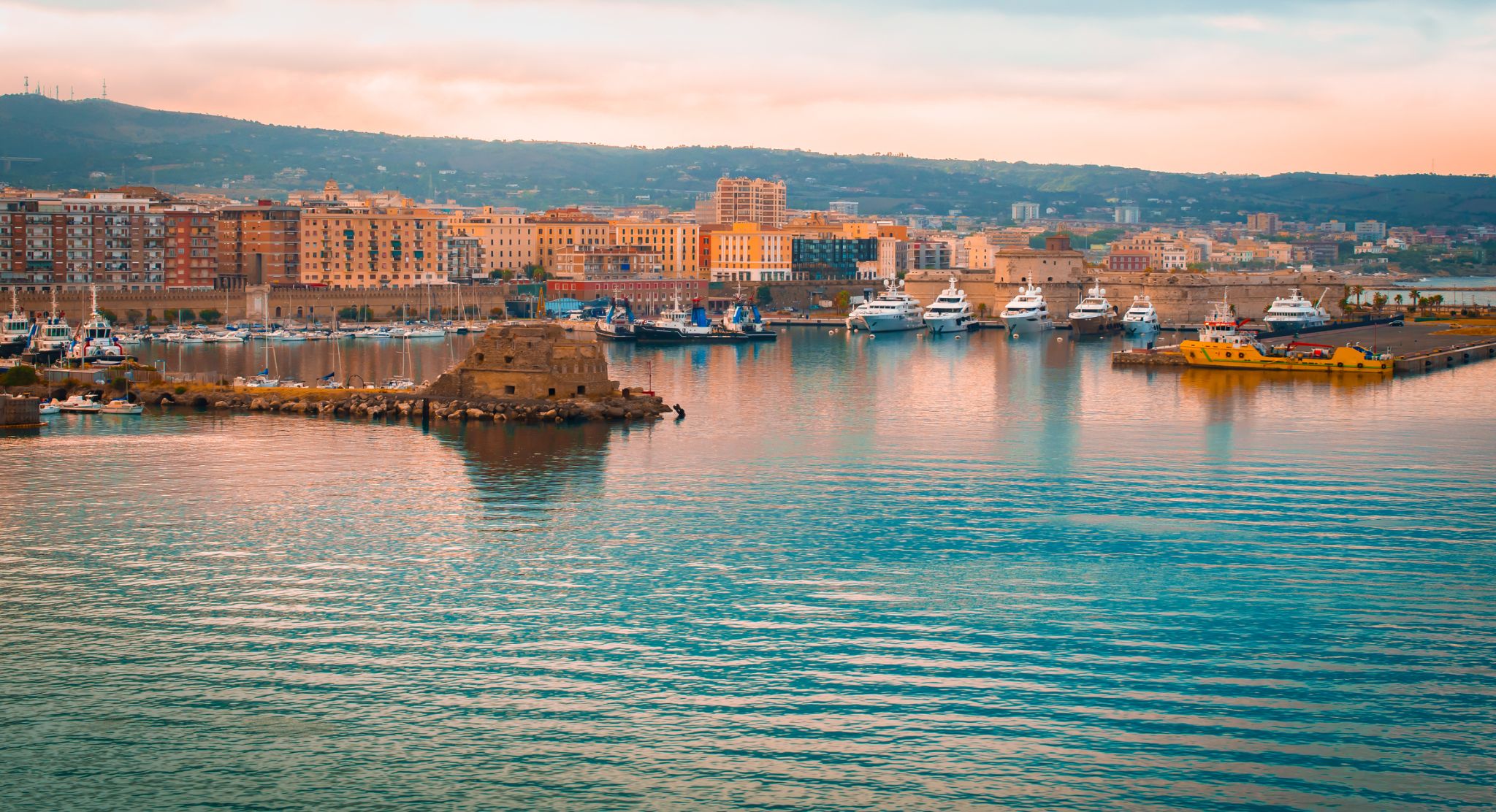
Rome is the capital city and a special comune of Italy (named Comune di Roma Capitale). Rome also serves as the capital of the Lazio region. With 2,872,800 residents in 1,285 km2(496.1 sq mi), it is also the country's most populated comune. It is the fourth-most populous city in the European Union by population within city limits. It is the centre of the Metropolitan City of Rome, which has a population of 4,355,725 residents, thus making it the most populous metropolitan city in Italy. Rome is located in the central-western portion of the Italian Peninsula, within Lazio (Latium), along the shores of the Tiber. The Vatican City (the smallest country in the world) is an independent country inside the city boundaries of Rome, the only existing example of a country within a city: for this reason Rome has been often defined as capital of two states.
Rome's history spans 28 centuries. While Roman mythology dates the founding of Rome at around 753 BC, the site has been inhabited for much longer, making it one of the oldest continuously occupied sites in Europe. The city's early population originated from a mix of Latins, Etruscans, and Sabines. Eventually, the city successively became the capital of the Roman Kingdom, the Roman Republic and the Roman Empire, and is regarded as the birthplace of Western civilization and by some as the first ever metropolis. It was first called The Eternal City (Latin: Urbs Aeterna; Italian: La Città Eterna) by the Roman poet Tibullus in the 1st century BC, and the expression was also taken up by Ovid, Virgil, and Livy. Rome is also called the "Caput Mundi" (Capital of the World). After the fall of the Western Empire, which marked the beginning of the Middle Ages, Rome slowly fell under the political control of the Papacy, which had settled in the city since the 1st century AD, until in the 8th century it became the capital of the Papal States, which lasted until 1870. Beginning with the Renaissance, almost all the popes since Nicholas V (1447–1455) pursued over four hundred years a coherent architectural and urban programme aimed at making the city the artistic and cultural centre of the world. In this way, Rome became first one of the major centres of the Italian Renaissance, and then the birthplace of both the Baroque style and Neoclassicism. Famous artists, painters, sculptors and architects made Rome the centre of their activity, creating masterpieces throughout the city. In 1871, Rome became the capital of the Kingdom of Italy, which, in 1946, became the Italian Republic.
Rome has the status of a global city. In 2016, Rome ranked as the 14th-most-visited city in the world, 3rd most visited in the European Union, and the most popular tourist attraction in Italy. Its historic centre is listed by UNESCO as a World Heritage Site. The famous Vatican Museums are among the world's most visited museums while the Colosseum was the most popular tourist attraction in world with 7.4 million visitors in 2018. Host city for the 1960 Summer Olympics, Rome is the seat of several specialized agencies of the United Nations, such as the Food and Agriculture Organization (FAO), the World Food Programme (WFP) and the International Fund for Agricultural Development (IFAD). The city also hosts the Secretariat of the Parliamentary Assembly of the Union for the Mediterranean (UfM) as well as the headquarters of many international business companies such as Eni, Enel, TIM, Leonardo S.p.A., and national and international banks such as Unicredit and BNL. Its business district, called EUR, is the base of many companies involved in the oil industry, the pharmaceutical industry, and financial services. Rome is also an important fashion and design centre thanks to renowned international brands centered in the city. Rome's Cinecittà Studios have been the set of many Academy Award–winning movies.
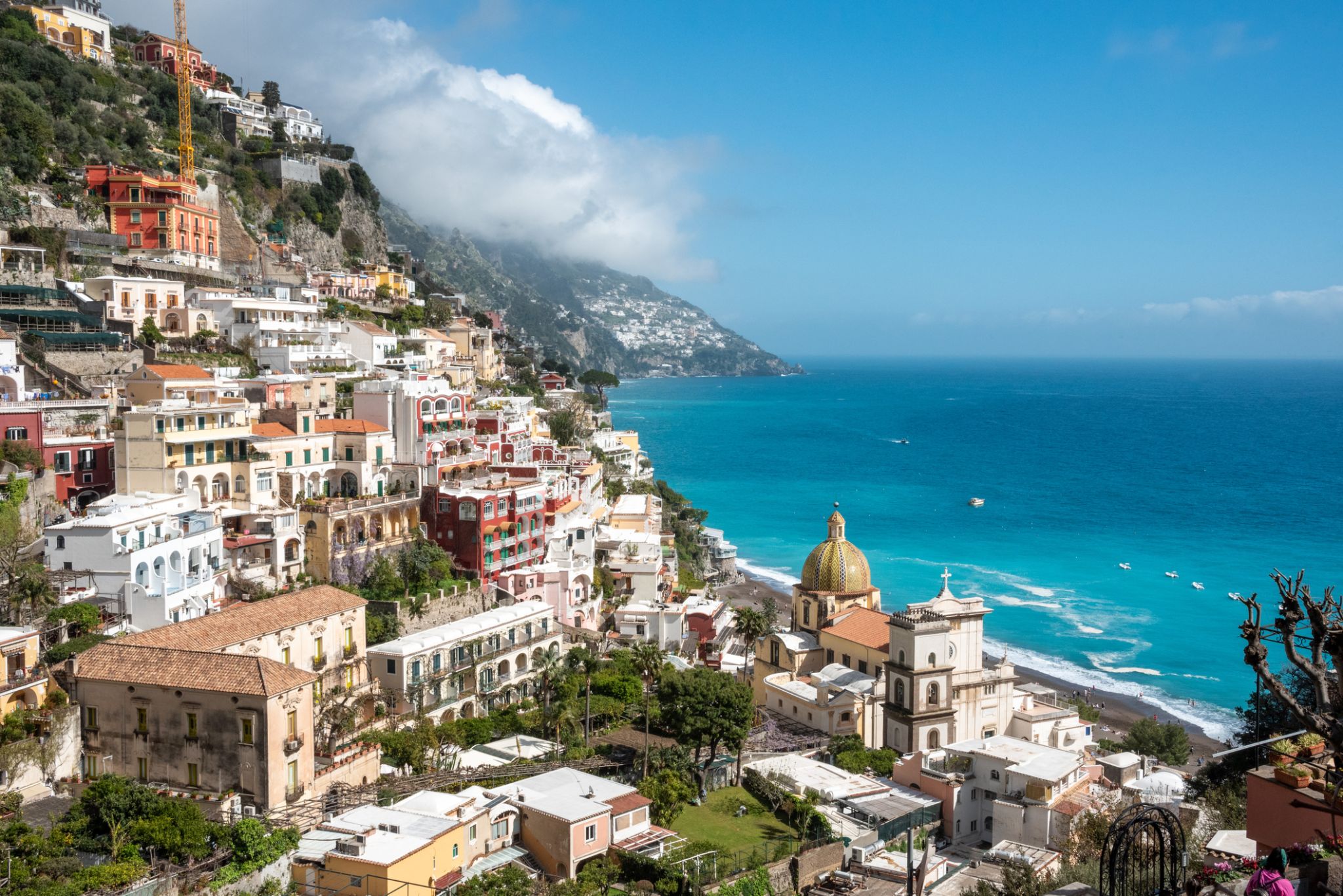
Sorrento is a town overlooking the Bay of Naples in Southern Italy. A popular tourist destination due to its variety of small antique shops and location on the Amalfi Coast, it can be reached easily from Naples and Pompeii as it is at the south-eastern end of the Circumvesuviana rail line. The town is most commonly known for its small shops selling an arrangement of ceramics, lacework and marquetry (woodwork).
The Sorrentine Peninsula has views of Naples, Vesuvius and the Isle of Capri. The Amalfi Drive, connecting Sorrento and Amalfi, is a narrow road that threads along the high cliffs above the Tyrrhenian Sea.
Ferries and hydrofoils connect the town to Naples, Amalfi, Positano, Capri and Ischia. Sorrento's sea cliffs and luxury hotels have attracted celebrities including Enrico Caruso and Luciano Pavarotti.
Limoncello, a digestif made from lemon rinds, alcohol, water and sugar, is produced in Sorrento. Other agricultural production includes citrus fruit, wine, nuts and olives.

Taormina is a picturesque town on the eastern coast of Sicily, nestled on the slopes of Mount Tauro with breathtaking views of the Ionian Sea and Mount Etna. This historic resort is renowned for its ancient Greco-Roman theatre, which is still used for concerts and performances thanks to its exceptional acoustics and a backdrop where the sky, sea, and smoking volcano peak merge. Since the 19th century, Taormina has attracted celebrities, artists, and writers, and remains a symbol of refined relaxation and cultural tourism.
Narrow cobbled streets of the old town lead to elegant squares, boutiques, churches, and cozy cafés serving Sicilian pastries and fresh seafood. From beaches like Isola Bella — a small island connected to the shore by a thin strip of sand — there are postcard-worthy views. Taormina is also famous for its festivals, including the renowned summer film festival. It’s a place where nature, history, and Italian elegance merge into a unique atmosphere that leaves lasting impressions
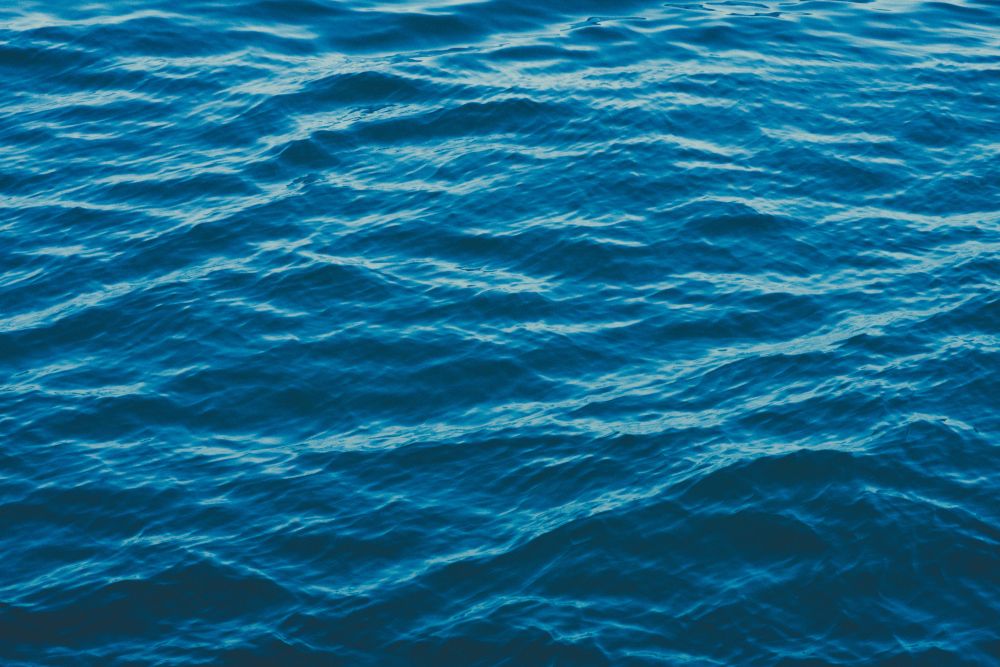
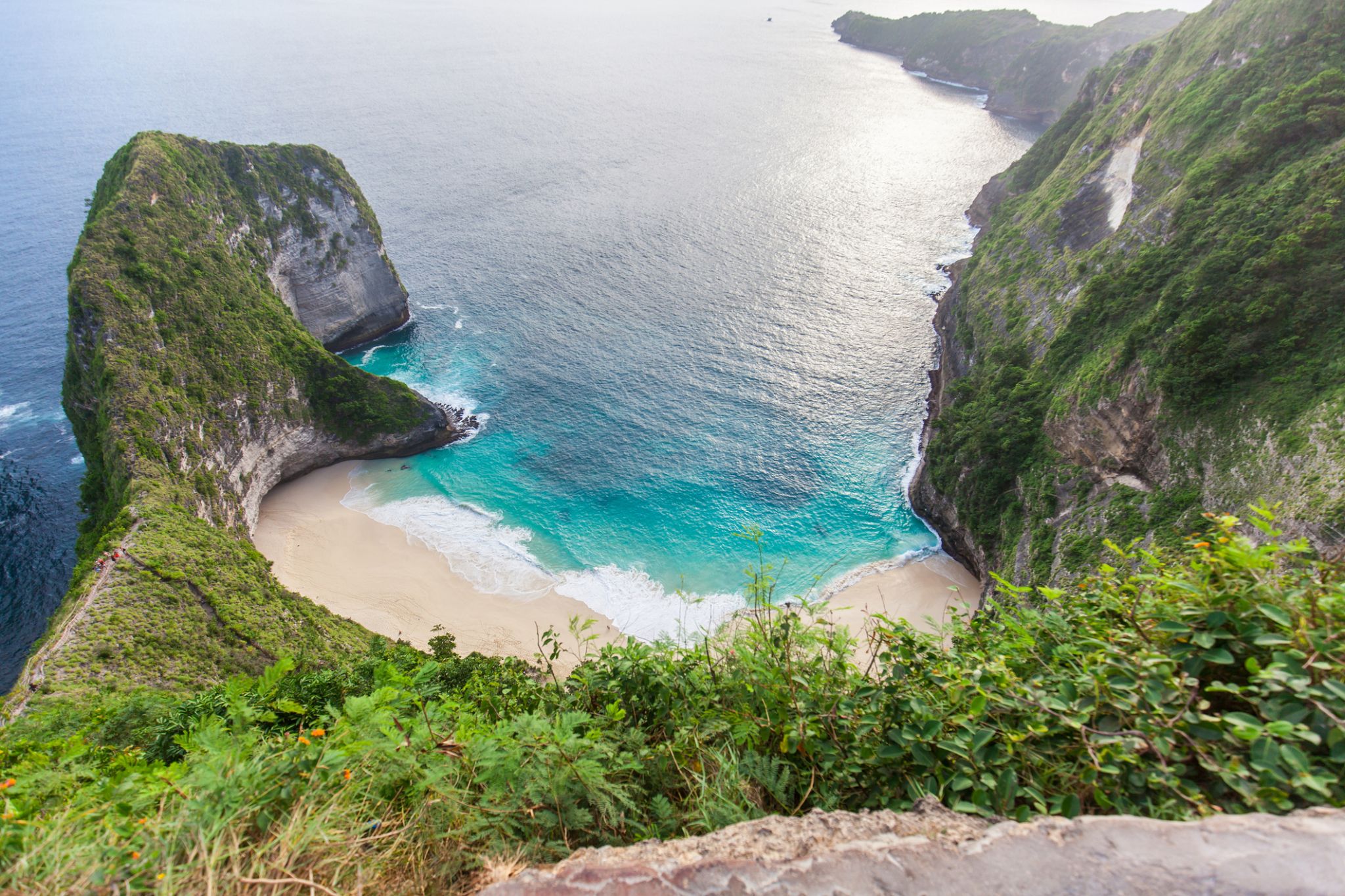
Manta
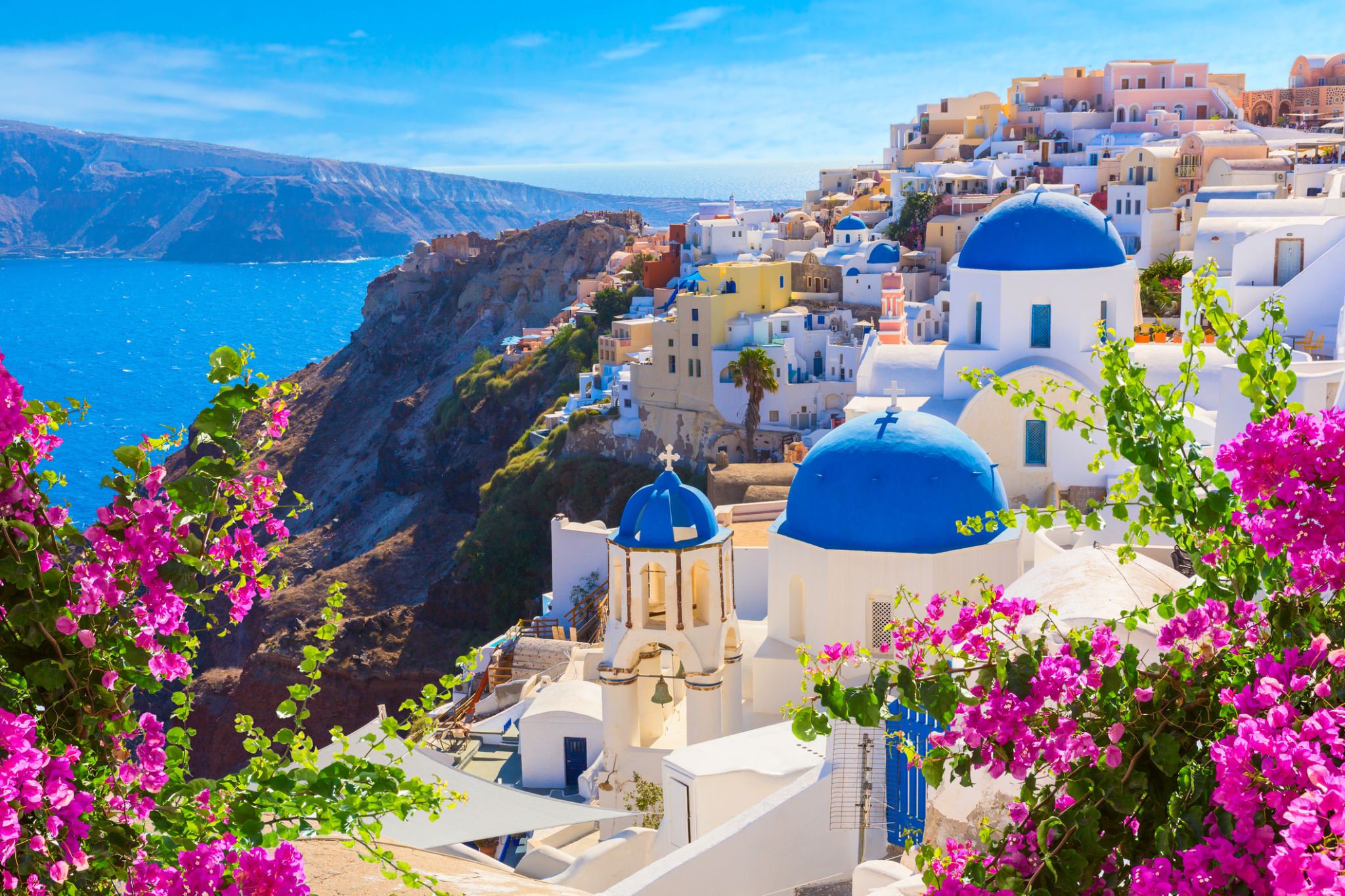
Santorini, classically Thera, and officially Thira, is an island in the southern Aegean Sea, about 200 km (120 mi) southeast of Greece's mainland. It is the largest island of a small, circular archipelago, which bears the same name and is the remnant of a volcanic caldera. It forms the southernmost member of the Cyclades group of islands, with an area of approximately 73 km2 (28 sq mi) and a 2011 census population of 15,550. The municipality of Santorini includes the inhabited islands of Santorini and Therasia and the uninhabited islands of Nea Kameni, Palaia Kameni, Aspronisi, and Christiana. The total land area is 90.623 km2 (34.990 sq mi).Santorini is part of the Thira regional unit.
The island was the site of one of the largest volcanic eruptions in recorded history: the Minoan eruption(sometimes called the Thera eruption), which occurred about 3,600 years ago at the height of the Minoan civilization. The eruption left a large caldera surrounded by volcanic ash deposits hundreds of metres deep. It may have led indirectly to the collapse of the Minoan civilization on the island of Crete, 110 km (68 mi) to the south, through a gigantic tsunami. Another popular theory holds that the Thera eruption is the source of the legend of Atlantis.
It is the most active volcanic centre in the South Aegean Volcanic Arc, though what remains today is chiefly a water-filled caldera. The volcanic arc is approximately 500 km (310 mi) long and 20 to 40 km (12 to 25 mi) wide. The region first became volcanically active around 3–4 million years ago[citation needed], though volcanism on Thera began around 2 million years ago with the extrusion of dacitic lavas from vents around the Akrotiri.
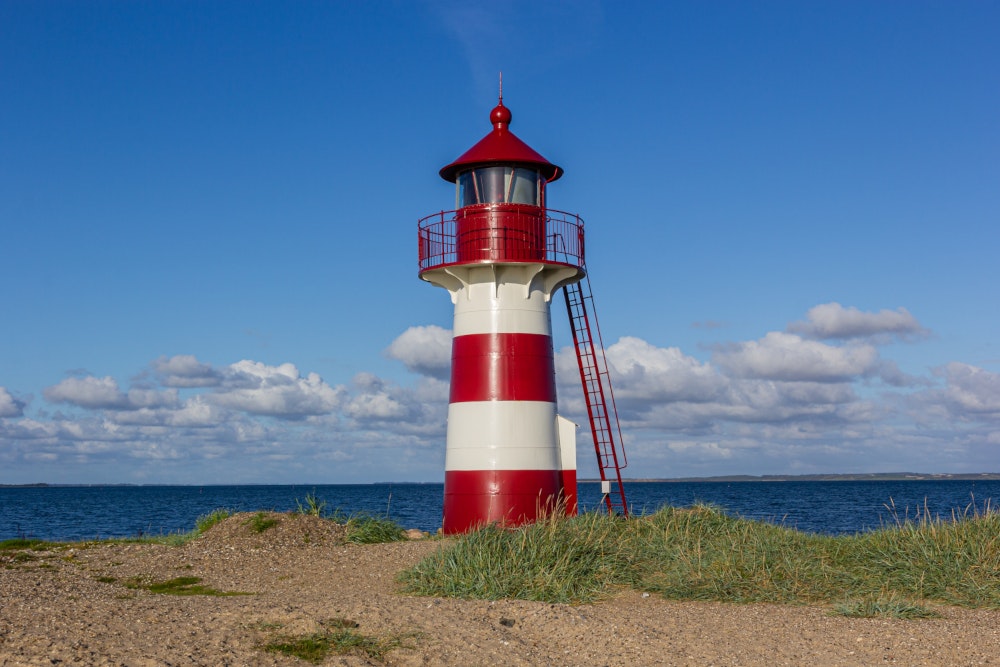
Milos, the southernmost island of the Western Cyclades, stands out with its volcanic landscape and rich mineral resources. Renowned for its lace-like coastline, the island boasts over 75 beaches featuring crystal-clear turquoise waters and colorful monumental cliffs.
Due to its volcanic origin, Milos impresses with its diverse landscapes. Adjacent beaches range from those with pristine white sands to pebbled coves surrounded by white, red, yellow, and even black rocks
The island gained global fame in the 19th century with the discovery of the Venus de Milo statue, now housed in the Louvre. The main port, Adamas, features one of the most reliable natural harbors in the Aegean Sea. This picturesque town offers cobbled streets, whitewashed houses adorned with flower-filled balconies, and fragrant "armirikia" bushes (glassworts) celebrated by poets. A visit to the island's mining museum, showcasing its rich mineral exhibits, is highly recommended
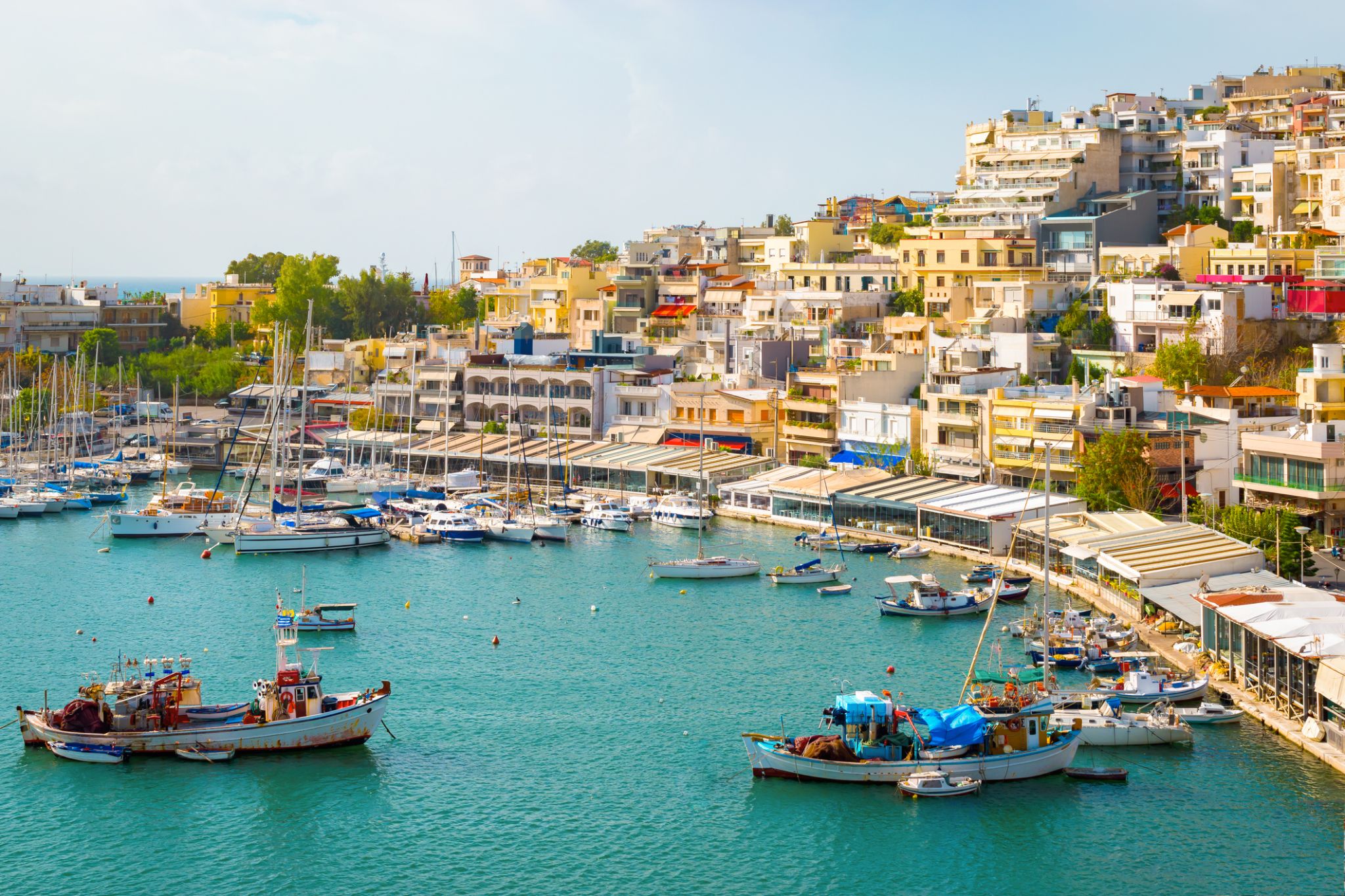
Piraeus is the gateway to Athens , which, in turn, is rightfully considered the center of the centers of the whole world, with the main attraction - the acropolis. Piraeus is an old port city serving the port of Athens, the largest port in Greece to date. Piraeus is part of the great Athens, which boasts an abundance of attractions, including unique monuments of national fine art. More than two hundred museums and galleries, including the University History Museum, the Ceramics Archaeological Museum and many others, will hospitably welcome you within their walls and familiarize themselves with the culture of this area.